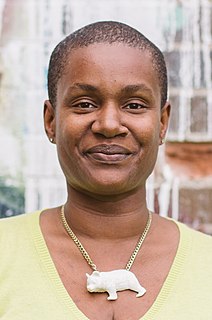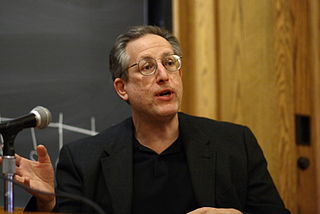A Quote by Kristen Soltis Anderson
Fast-moving views are not likely to be strongly held views. Instead, they're much more likely to be about people mirroring back the signals they see coming from the leaders they support. People can resolve dissonance by shifting their own view on issues that aren't top of mind.
Related Quotes
It is unlikely that many people will take to heart the conclusion that coming into existence is always a harm. It is even less likely that many people will stop having children. By contrast, it is quite likely that my views either will be ignored or will be dismissed. As this response will account for a great deal of suffering between now and the demise of humanity, it cannot plausibly be thought of as philanthropic. That is not to say that it is motivated by any malice towards humans, but it does result from a self-deceptive indifference to the harm of coming into existence.
People who graduate are more resilient financially, and they weather economic downturns better than people who don't graduate. And, throughout their lives, people who graduate are more likely to be economically secure, more likely to be healthy, and more likely to live longer. Face it: A college degree puts a lot in your corner.
Every religion I know of has changed its views with respect to concrete controversies over long periods of time. People's views about the morality of homosexuality are likely to undergo some change, even though they're making judgments based on their religious beliefs. Because in fact, religion is an extremely durable, and yet flexible, way of trying to apprehend what's good and what's bad in the world. In fact, its durability comes from its flexibility. Now, speaking from inside a religion, it's hard to talk that way.
A lot of my books deal with very controversial issues that most people often don't want to talk about, issues that, in my country, are more likely to get put under the carpet than get discussed. And when you talk about moral conundrums, about shades of gray, what you're doing is asking the people who want the world to be black and white to realize instead that maybe it's all right if it isn't. I know you'll learn something picking up my books, but my goal as a writer is not to teach you but to make you ask more questions.




































